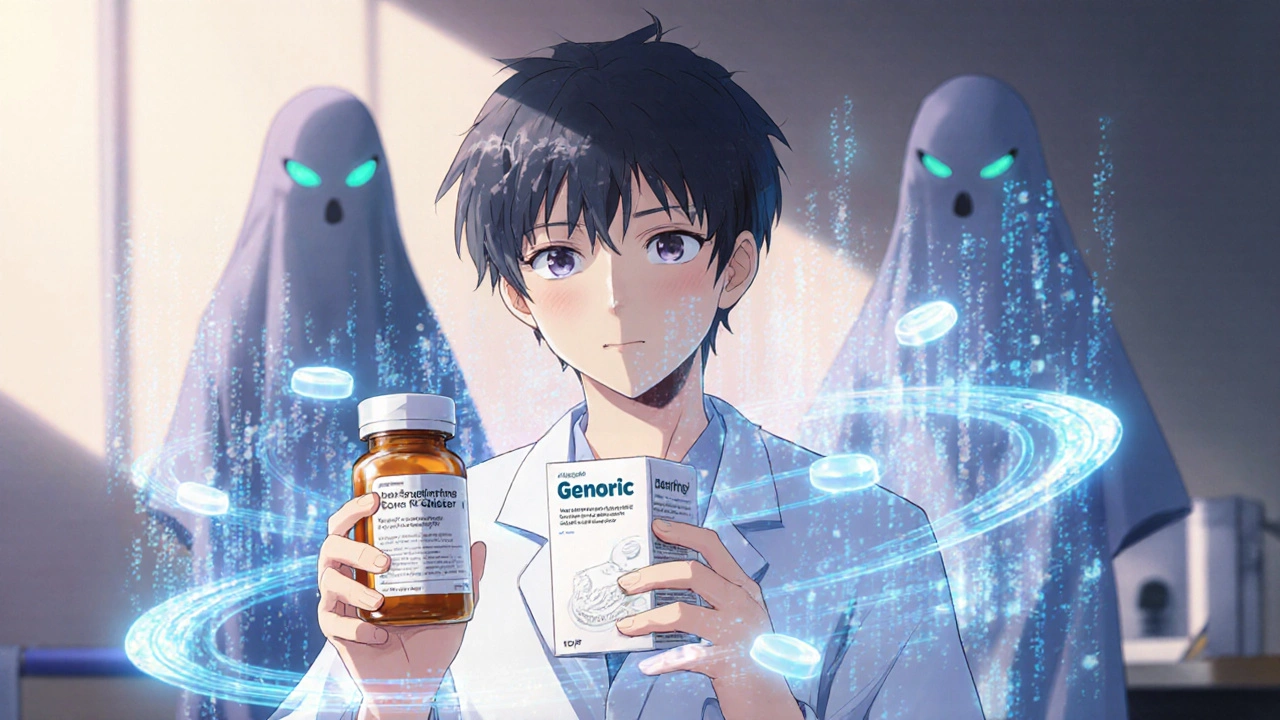Brand Psychology: How Drug Perception Shapes Your Health Choices
When you see brand psychology, the study of how consumers’ emotions and beliefs influence their response to branded products. Also known as pharmaceutical branding, it’s not just about logos—it’s about how a pill’s name, color, or price changes how your brain thinks it will work. You might think a drug works better because it’s expensive, or that a generic version won’t help as much—even if the active ingredient is identical. This isn’t just in your head. Studies show people report fewer side effects and better results from branded drugs, even when they’re actually taking the generic. That’s brand psychology in action.
It shows up everywhere in medicine. Take generic switching, the practice of replacing a branded medication with its chemically identical generic version. Also known as therapeutic substitution, it’s a cost-saving move that’s often pushed by insurers and pharmacies. But if you’ve been on brand-name warfarin for years and your doctor switches you to a generic, your INR might spike or drop—not because the drug changed, but because your brain expected trouble. The same thing happens with antidepressants like Prozac or Seroquel. People report feeling worse after switching, even when blood levels are perfect. That’s not placebo—it’s perception shaping physiology.
And it’s not just about pills. The way a drug is marketed, the size of the bottle, even the sound of the name—like "Aromasin" versus "exemestane"—triggers subconscious associations. One study found patients trusted a drug more when it was described as "precision-targeted," even if the science was identical to a simpler description. This matters because your belief in a treatment directly affects how well it works. If you think your medication is weak, your body might respond as if it is.
Meanwhile, pharmaceutical marketing, the strategies drug companies use to influence prescribing and patient behavior. Also known as direct-to-consumer advertising, it’s designed to create loyalty—not just to a brand, but to the idea that branded equals better. You see it in ads that show happy families, calm mornings, or doctors in white coats. They don’t just sell drugs—they sell peace of mind. And that’s powerful. It’s why people pay more for branded Depakote even when generic valproic acid works the same. It’s why someone might avoid a cheap generic Clomid because they fear it won’t help them conceive.
But here’s the truth: the science doesn’t care about the label. The active ingredient in your medication is what actually affects your body. Yet your brain does. That’s why understanding brand psychology isn’t just about being a smarter shopper—it’s about taking back control. When you recognize that your fear of generics or your trust in a fancy name is being shaped by marketing, not science, you can make choices based on real evidence, not emotional triggers.
Below, you’ll find real-world examples of how this plays out: why switching from Aggrenox to plain aspirin and dipyridamole can work just fine, how people report side effects from generic Wellbutrin that they never had on the brand, and why some older adults avoid heart meds simply because the packaging looks "cheap." These aren’t myths. They’re measurable, documented reactions—and they’re happening to people just like you.

